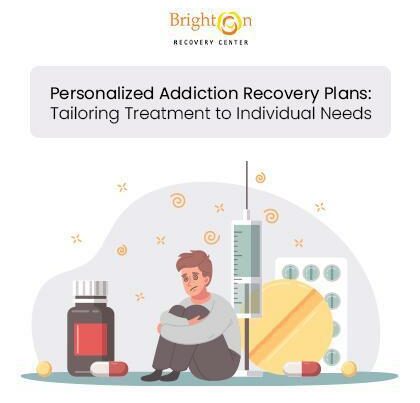Finding Detachment Through the Day

Going through the recovery process can be incredibly stressful. Every day, life can present any number of unforeseen stressors, and someone can quickly find themselves overwhelmed by their recovery, professional lives, or personal struggles. Finding a way for each person to detach themselves from these stressors is essential. Finding time to do so can mitigate the chances that these stresses continue to build up, causing adverse effects on one’s mental health. Learning to detach as part of someone’s everyday routine can be difficult amidst a day of stresses and expectations, but is an essential part of the recovery process.
What is Detachment?
Detachment can mean several different things, especially in the recovery process. Just as excess stress can become overbearing in one’s life, too much detachment can cause someone to begin to feel indifferent about their surroundings or further themselves into isolation as they continue to emotionally separate from their families and loved ones. However, detachment can also prove to be a useful tool if used in moderation. It can allow someone to let go of their stresses and expectations and instead focus on their mental well-being by taking a deserved break. Detachment can be a way for someone to find a way to end a workday concretely or set an endpoint to dealing with other expectations to maintain a healthy, balanced lifestyle.
Blackout Times
Blackout times are times when someone can ensure that they cannot be bothered by the stresses of work or any other aspects of the outside world. It is a time when they can shut off the television or news feed to mitigate their social media interactions or turn off their phones not to be contacted with requests or work stresses. Implementing a blackout time can be up to each individual. While some may practice this in conjunction with eating meals, others will instead set a time at night where they turn off devices to ensure a peaceful, restful sleep or engage in a relaxing, pre-bedtime routine.
Scheduling In Self-Care
It is easy to get bogged down in the constant movement of daily life. Whether it be appointments that someone has to attend, work that has to be done, or chores and other responsibilities that need to be tended to, there always seems to be more tasks that require attention. However, these tasks cannot be allowed to overtake one’s self-care. Self-care is just as important as any other task throughout the day. By scheduling time for someone to take a walk, engage in sport, attend a yoga class, or even meditate in their residence, one can achieve self-care aspects. Detachment is about releasing these stresses that one experiences daily through a safe and progressive medium, allowing stress not to manifest within one’s self and instead be expelled through practiced, therapeutic activities.
Finding a Daily Practice
How detachment looks to each person will be different. While some may enjoy the solitary environment and meditative atmosphere to process their stresses, others may benefit from a different approach. Detachment doesn’t have to mean solidarity. Instead, it may mean that someone wishes to let go of stress for a time each day. For example, playing video games with friends can be effective if used correctly or even playing a basketball pick-up game. Practicing detachment is simply a way for someone to begin to see their time as their own and that they have the agency to decide when they have reached their daily limit and need to expend much of the stresses that inevitably built up over the day.
Detachment is also a way for someone to practice the worth of their own time actively. By scheduling time to detach, they can see that their time is just as important as another’s, or just as important as their job. This practice is incredibly validating for those searching to regain their sense of identity outside of their occupation or relationships. Each person has the agency to let go of their stresses, even if just for a moment. While this doesn’t mean that someone can begin shirking responsibilities or accountability, it does reinforce the idea of balance in one’s life. It helps each person understand how to plan their days responsibly and fairly to them and their health.
Learning to let go of stresses throughout the day is both incredibly important and incredibly challenging. Ways to detach from stress may include creating blackout times, scheduling self-care, and finding an enjoyable daily practice. Not only can someone be struggling with their stresses, but they can also develop unhealthy coping mechanisms as a result. If you or a loved one struggles with the effects of trauma or an addiction to drugs or alcohol, Brighton Recovery Center can help you begin your journey to sobriety today. With an extensive, six-building campus, there are several ways in which we can personalize a program for you and your needs. Our on-site recreation center, gym, coffee shop, yoga studio, and meeting halls are all available for each person to develop a plan for recovery pertinent to each individual and their goals. Permeating with a sense of community, Brighton Recovery Center prides itself on its constant swell of personalized support from both professionals and peers alike to help someone confront their stresses, as well as balance their own needs for self-care. For more information on how we can personalize a program for you, call us today at (844) 479-7035.



